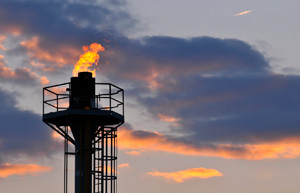Key events

January
The Supervisory Board appointed the President and members of the PGNiG Management Board for a new joint three-year term of office. The following members of the Management Board were reappointed for the term: Michał Szubski (CEO and President), Radosław Dudziński, Sławomir Hinc, Marek Karabuła and Mirosław Szkałuba.
PGNiG was again listed in the elite group of companies included in the RESPECT Index, a stock-exchange index of socially responsible companies. On January 25th 2011, the Warsaw Stock Exchange published the second issue of the list of companies included in this index.
February
Given the unstable political situation in Egypt and Libya, Polish employees of the PGNiG Cairo Branch and POGC Libya were evacuated and returned to Poland. The equipment was secured and only local employees remained at the two branches. In Egypt, the suspension of work was temporary and had no negative effect on the progress of exploration activities. The Company expects to return to Libya in 2012.
PGNiG SA was included in a group of companies that stand out for their CSR efforts and the clarity with which they present them on their corporate websites. The list is based on the
BI-NGO 2010 Index, which evaluates how the 500 largest companies listed by the Rzeczpospolita daily communicate their CSR efforts over the Internet.
Introduction of Logito – an electronic system for handling complaints and requests at PGNiG SA LOGITO, which will improve the document circulation process and facilitate reporting, as well as data processing and analysis.

March
During its meeting held on March 8th 2011, the Supervisory Board of PGNiG appointed Mr Mirosław Szkałuba Vice-President of the Company’s Management Board. Mr Szkałuba was nominated by PGNiG employees.
PGNiG SA, PGNiG Energia SA, Tauron Polska Energia SA, Elektrownia Stalowa Wola SA and Elektrociepłownia Stalowa Wola SA executed an agreement on operation of the Elektrociepłownia Stalowa Wola SA special purpose vehicle, which is to manage an advanced 400 MWe and 240 MWt CCGT unit in Stalowa Wola.
On March 21st 2011, PGNiG and OOO Gazprom Export signed an annex to the contract for the sale of natural gas to Poland. Under the annex, the maximum daily contracted gas supplies were increased from 9.36m m³ to 13.95m m³ (according to Polish standards).
April
On April 15th 2011, PGNiG SA disposed of 4,000,001 shares in Zakłady Azotowe w Tarnowie-Mościcach SA with a par value of PLN 5 per share, at a price of PLN 37.00 per share.
The Annual General Meeting of PGNiG SA approved the financial statements and the Director’s Reports on the operations of PGNiG SA, as well as the consolidated financial statements and the Director’s Report on the operations of the PGNiG Group, and granted discharge to members of the Management and Supervisory Boards of PGNiG SA for the financial year 2010.
PGNiG won first place amongst Polish companies in the Fuels and Energy category of the 2011 Responsible Business Ranking organised by the Dziennik Gazeta Prawna daily.
May
PGNiG and Vitol SA of Geneva executed a contract for the annual supply of about 550m m³ of natural gas through the newly built interconnector, to the cross-border point in the Cieszyn area. The value of the contract was approximately EUR 550m. Supplies will commence on October 1st 2011 and last until October 1st 2014, which will enable the Company to use 100% of its throughput capacity, as well as the pipeline, contracted as part of the open season process held by OGP Gaz-System SA. The new interconnector helps enhance Poland’s energy security, as it will handle gas supplies to Poland from the south.
PGNiG has introduced the Ethics Officer function, with the key responsibilities of ensuring adherence to the principles of ethical conduct, strengthening of corporate culture based on the highest ethical standards and promotion of ethical behaviour at the Company.

June
PGNiG updated the Group’s strategy until 2015. The Company’s overarching strategic objective is to increase shareholder value and to continue growth as a multi-utility. The strategy will be implemented taking into consideration the need to the ensure long-term security of uninterrupted natural gas supplies to the Polish market.
Attainment of the strategy’s objectives will rely in particular on activities concentrated in three areas, including:
- Hydrocarbon exploration and production domestically and abroad, to ensure access to new oil and gas reserves;
- The power segment, focusing on the development of gas-fired power generation in Poland;
- Management of the Company’s natural gas portfolio and activities on the European gas trading market.
The President of the Energy Regulatory Office approved the tariff for gaseous fuels (Part A – supply of gaseous fuels – No. 4/2011). Average prices and charge rates for the supply of high-methane gas E, Lw nitrogen-rich gas and Ls nitrogen-rich gas were increased by 8.9%, 7.6% and 6.3%, respectively.
At the ‘Marketing in the gas industry: Corporate social responsibility in the gas industry’ conference, a PGNiG representative spoke about the evolution of CSR, using PGNiG as an example.
At the 3rd Responsible Energy Conference, the Declaration on Sustainable Development in the Energy Sector in Poland was signed by the CEOs of another eight companies: Energa, PKP Energetyka, Dolnośląska Spółka Gazownictwa, Górnośląska Spółka Gazownictwa, Karpacka Spółka Gazownictwa, Mazowiecka Spółka Gazownictwa, Pomorska Spółka Gazownictwa, and Wielkopolska Spółka Gazownictwa.
Pilot tests of PGNiG’s e-Pasaż marketing web platform designed for expert advisory services and e-commerce, were conducted. Never before had PGNiG applied an IT tool this advanced in the provision of comprehensive services to retail customers.
August
The FPSO vessel was anchored on the Skarv field on the Norwegian Continental Shelf.
PGNiG SPV 1 Sp. z o.o. and Vattenfall AB executed a memorandum of understanding concerning the sale of 24,591,544 shares in Vattenfall Heat Poland SA, representing over 99.8% of the company’s share capital. After the Stalowa Wola project, the purchase of the Warsaw CHPs marked another milestone in PGNiG’s development into a multi-utility.
Moody’s reduced PGNiG’s rating outlook from “stable” to “negative”, and maintained the rating at Baa1. The lower outlook reflects the threats inherent in PGNiG’s development plans for the upstream segment, the segment’s financing requirements and the business risk being higher than the risk of the PGNiG Group’s core business in terms of performance volatility.

September
In PGNiG’s Lubocino license area near Wejherowo, the first shale gas flow was recorded.
PGNiG completed the expansion of the Strachocina underground gas storage facility.
October
PGNiG Norway AS executed an agreement on the sale of crude oil with the Shell International Trading and Shipping Company Ltd. The price of crude oil will be linked to Brent Dated prices and payments for the delivered crude will be settled in US dollars. The agreement was executed for an indefinite term and will become effective in the month of production launch.
November
PGNiG started to import gas on a virtual reverse basis. This enables the Company to increase the annual volume of natural gas imported to Poland along the Yamal pipeline to around 2.3bn m³.
PGNiG formally called OAO Gazprom and OOO Gazprom Export to participate in arbitration proceedings before the Arbitration Tribunal of Stockholm. The proceedings concerned the pricing terms for delivered gas.
Standard & Poor’s Financial Services increased PGNiG’s ratings outlook from “negative” to “stable”. The Company’s rating of BBB+ was maintained.
The President of the Energy Regulatory Office approved a tariff for gaseous fuel storage services (No. 1/2011). Under the new tariff, prices went down by 3% on the previous tariff. The introduction of the new tariff was related to provision of access by PGNiG to additional storage capacities.
December
The Act on Reserves of Crude Oil, Petroleum Products and Natural Gas came into force. The Act allows mandatory reserves of natural gas to be maintained in storage facilities outside Poland (in the EU or EFTA countries). Such a solution is permitted provided that the delivery of those reserves to the Polish transmission or distribution system within 40 days is guaranteed. The Act also provides for the increasing, from 50m m³ to 100m m³, of the annual limit on gas imports, entitling the importer to apply for exemption from the obligation to maintain gas reserves. Further, the obligation to maintain gas reserves exclusively applies to companies which import gas for resale to customers in Poland.
Mr Michał Szubski resigned from the post of CEO and President of the PGNiG Management Board. From January 1st 2012 to the conclusion of recruitment proceedings, Mr Marek Karabuła, Vice-President for Oil Mining, supervised matters within the powers of the Board President, including the operation of the PGNiG Management Board.

